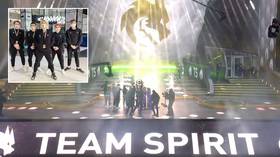Ole Gunnar Solskjaer: Manchester United’s slavish pursuit of history shows the arrogance of a club that has lost its way
Reports that under-fire Manchester United boss Ole Gunnar Solskjaer has received a (perhaps temporary) stay of execution at Old Trafford prove that the famous club remains arrogantly tethered to its achievements of yesteryear.
Cast your mind back a few decades. In the early 1990s Liverpool, who had for so long been the pacesetters in English football, found themselves at an existential crossroads. For over 30 years, success on the red side of the Mersey wasn't just the target, it had become part of the very fabric of a club who were – at that point at least – unchallenged in their status as England's finest football club.
Bill Shankly began it in 1959 and with each successive appointment – to Bob Paisley, Joe Fagan and eventually Kenny Dalglish – success followed, to the tune of 13 league titles in 32 years, as well as four European Cups between 1974 and 1985.
This blueprint seemed to have been diligently adhered to when Graeme Souness was handed the reins in 1991. He was a former club captain who had been simmered in Liverpool's rich traditions. He had even won three league titles in Scotland during his managerial apprenticeship with Rangers.
Except this time it didn't quite work. Of course, there are several factors which go in to this – not least of which was Alex Ferguson's rise at Manchester United but Souness' spell in charge coincided with the crumbling of an empire, and everyone could see it – even Souness' former Liverpool and Scotland teammate Alan Hansen, who opined in his analyst duties on television that his dear friend simply wasn't the right man for the job.
Fast forward to the present day, and cast Solskjaer in the Souness role and Sky Sports' Gary Neville in that of Hansen as he attempts to hold court over discussions of this broken Manchester United team presided over by his old Norwegian mate.
Neville – normally a straight shooter – has been the subject of criticism for his unwillingness to ascribe blame towards anyone throughout United's dire recent run which culminated in the 5-0 home whitewashing against Liverpool last weekend, a team, remember, that Man Utd succeeded as English football's high-water mark.
If you would have said 22 years ago that United fans would be turning on me for supporting the guy who won “ Us “ the Champions League I would have said no way! But it’s 2021 folks! In the “ Johnson Era “ anything goes 😂
— Gary Neville (@GNev2) October 25, 2021
Instead, and in harsh contrast to Hansen, Neville pointed to more abstract maladroitness and recycled tropes of players "not being committed enough", suggesting that the club's deficiencies can be corrected on the training ground and point-blank refusing to criticize the coaching staff on live television, saying that no isn't the time to "turn on" them – an assertion which was met with bellowed laughter by Liverpool stalwart Jamie Carragher and a terse frown by, you guessed it, Graeme Souness, whose voice had raised several octaves throughout his many objections.
And one suspects that Souness and Carragher see something that Neville doesn't, or at least refuses to: pushing forward in a stubborn pursuit of a manager who fits the ethos, or DNA, of a club will more often than not amount to nothing. Three or so years into Solskjaer's reign, nothing has arrived and it has led to an existential crisis not seen at Old Trafford since David Moyes was cast as the fall guy to ease into the post-Ferguson era.
Reports this week suggest that Solskjaer has been handed a three-game window of opportunity to save his job – but that bad news is that those three games comes against Tottenham, Atalanta and Manchester City. Three defeats would hasten the club's demise into the Europa League, both this season and next.
Also on rt.com Antonio at the wheel? Italian boss Conte ‘open to considering Man Utd job’ as pressure rises on under-fire SolskjaerBut more than that, it is hard to ignore the feeling that Solskjaer has outstayed his welcome by around 18 months, and is being kept around out of a misplaced sense of loyalty to a goal he scored in a Champions League Final 21 years ago, as a pervasive arrogance seeps further into the club's foundations.
Look at Chelsea. Earlier this year they sacked their own legendary Champions League winning captain-turned-coach in Frank Lampard. Four months later they won another.
This naked hope (and that's all it is) that Solskjaer can somehow turn this situation around and fit snugly into the role of Ferguson's true successor has been played out as far as it can go, and this famous club will only truly rebound when they free themselves of the shackles of their own history.
And that day is inching inevitably closer – it just remains to be seen how much more damage is done between now and then lest they face their own 30-year barren spell from which Liverpool have only recently emerged.
By John Balfe
The statements, views and opinions expressed in this column are solely those of the author and do not necessarily represent those of RT.














